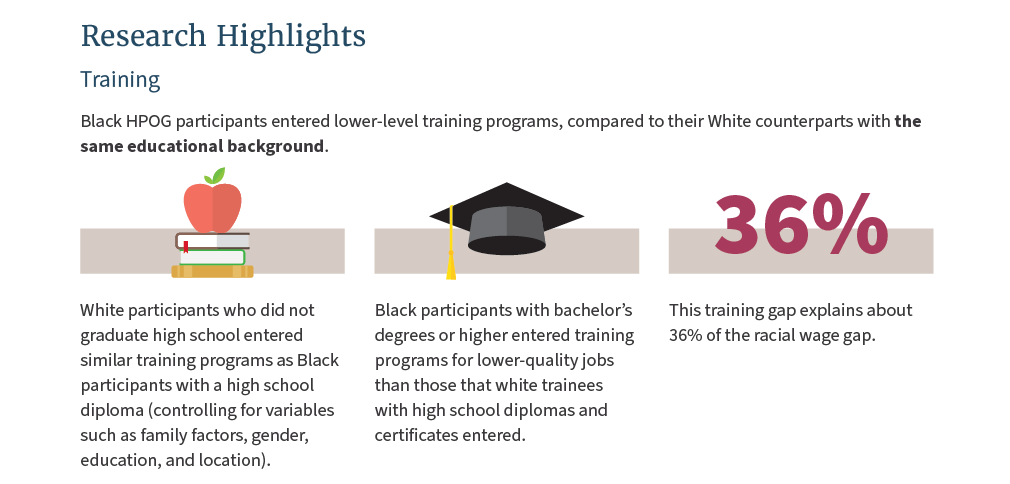
Health care is, generally, a solid profession with many ways to connect to and advance through the field. That’s one of the many reasons why the Department of Health and Human services helps low-income folks access healthcare training through the Health Profession Opportunity Grants (HPOG) Program. HPOG has been wildly successful at facilitating folks’ entry into healthcare jobs and allowing them to access the training and education they need to advance.
However, healthcare suffers from a great deal of occupational segregation, meaning women of color are overrepresented in the jobs with the least pay and the fewest opportunities for advancement. In nearly a decade of research into HPOG programs, we have documented this growing disparity, and highlighted the ways that employers, training centers, and participants themselves can interact to make health care more equitable. In our latest report, we look at one factor that contributes to this racial opportunity gap and one potential point of intervention: the training program selection.
In Healthcare Training Tracking: A Key Intervention Point to Improve Racial Equity in the Healthcare Workforce, researchers at IERE reveal that Black HPOG participants enter lower-level training programs than their white counterparts with the same educational background, contributing significantly to the racial wage gap. By intentionally guiding Black men and women to training programs with better outcomes, similar to those taken by White HPOG participants, workforce training centers could begin to tackle the problem of wage and opportunity disparities in healthcare.
“Training selection, which often happens in the first few days or even before foundational skills training begins, may seem insignificant, but it has massive implications well beyond the job and salary healthcare workers start with,” said report author Eunjung Jee. “By simply guiding already qualified Black healthcare trainees into a training program that is one step higher, they can earn about 15% more on average.”
